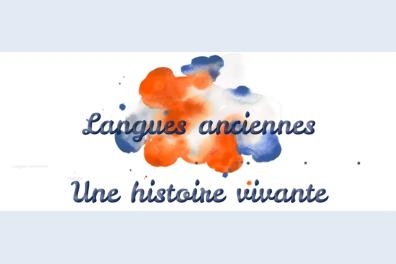Ancient languages, a living history: modern teaching of ancient oriental languages at Inalco
Menu Research
How does time affect a language?
Is an ancient language taught as a living language?

Inalco's mission is often to teach modern languages. But both the institution's history and current teaching practice show the complexity of the relationship between a language's present and past, between contemporary and classical culture.
Inalco's teaching programs are full of what I would gladly call "treasures", so rarely do these ancient or classical language courses take the spotlight.
Nineteen teachers here answer questions about the role of ancient languages in the training of our students and the methods employed.
Classical Malay, classical Japanese, Sanskrit, Biblical Hebrew, classical Arabic, classical Tamil, Old Russian, classical Armenian, classical Georgian, classical Chinese, hanmun Korean, proto-Mande are tackled here in a lively manner.
"It is necessary to consider man in all periods of history, under the influence of all climates, under the empire of all religious or political systems. ... The further the nations which are the object of our research are removed from the narrow circle in which we live ..., we feel drawn by an ever-increasing interest and an irresistible attraction. ... However, such a study cannot bear real fruit for anyone who has not made himself fit for it by long and arduous preparation.
There are two main ways of achieving this goal: travel and the study of languages. Knowledge of languages can dispense with the fatigue of travel... it also has the advantage of eliminating the distance of time as well as that of place." (Antoine-Isaac Silvestre de Sacy, speech published in 1861).
Madalina VARTEJANU-JOUBERT
Lecturer in Ancient Near Eastern History and Ancient Hebrew Literature